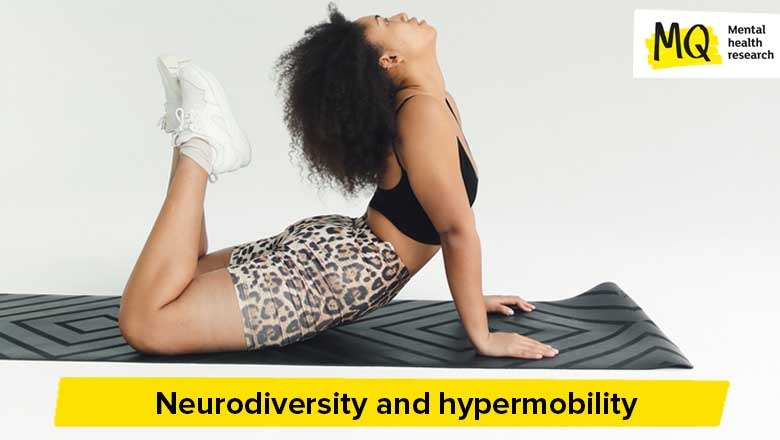Neurodivergent people are more than twice as likely as the general population to have hypermobile joints and are far more likely to experience pain on a regular basis, according to new research.
Led by Brighton and Sussex Medical School (BSMS) and funded by the MRC, MQ Mental Health Research and Versus Arthritis, the research found that more than 50% of participants with a diagnosis of Autism, attention deficit hyperactivity disorder (ADHD) or tic disorder (Tourette syndrome) demonstrated elevated levels of hypermobility, compared with just 20% of participants from the general population.
Neurodivergent participants also reported significantly more symptoms of pain and dysautonomia (eg, dizziness on standing up) than the comparison group and this was related to the number of hypermobile joints.
Dr Jessica Eccles, Lead Author and Clinical Senior Lecturer and MQ Versus Arthritis Fellow at BSMS, said: “This study is further proof of the link between neurodivergence and physical health issues, demonstrating a direct relationship between hypermobility and increased pain and dysautonomia.
“There are considerable barriers to healthcare for neurodivergent people – our research demonstrates that the need to reducing these barriers is even greater and opens up potential pathways for personalised care.
“Health providers need to make improvements to their services to make them more accessible to neurodivergent patients. They also need to move beyond “exclusive” diagnostic categories and traditional boundaries between body and brain that can lead to siloed healthcare.”
Chair of Sussex Ehlers-Danlos Syndromes (EDS), Jane Green, said: 'It took 54 years to receive my autistic and hypermobility EDS diagnoses, so it is really validating to realise that all my varied issues are real and linked up. That I wasn’t making up all my pain, both visible and invisible, I wasn’t being a hypochondriac and nor am I dim. It wasn’t my fault for not being strong and healthy or picking up ‘common-sense’ things that others expected me to do and the further trauma this caused.
“I hope that this study and future developments will now help so many more people I support, both my age and, hopefully the younger generation, who will not only be believed but supportively managed and be given the opportunity to have a much more healthy and fulfilled life.”
This is the first study to make this connection in Tourette syndrome and also to consider neurodivergent conditions together rather than as separate diagnostic groups.
The study aligned with the Neurodiversity movement, aiming to use non ableist language to describe conditions such as autism, and neurodivergent individuals were part of the research team.
Lea Milligan, CEO of MQ Mental Health Research said:
“It is ground-breaking research like this from Dr Eccles and her team that helps to dismantle the barriers to healthcare for people who might usually find it difficult to access. By learning how different conditions relate and breaking down the silos of treatment we can provide more holistic care to people who need it. Neurodiverse populations are far more likely to experience a mental health condition than the general population and the more we can facilitate treatment and provide personalised support the better. We were delighted to be co-funders of this study and congratulate the team at Sussex on their findings.”
Listen to MQ versus Arthritis Fellow Dr Jessica Eccles explain more abut the study here:
Other partners included Sussex Partnership NHS Trust, the Autonomic Unit, National Hospital for Neurology and Neurosurgery, UCL Queen Square Institute of Neurology, Guy’s and St Thomas’ NHS Foundation Trust, St Mary’s Hospital, London, Imperial College London, the University of Sussex and the University of Warwick.
The study was funded by the MRC and MQ Mental Health Research and Versus Arthritis and is published in Frontiers in Psychiatry.
Neha Issar-Brown, Director of Research at Versus Arthritis said:
“Understanding which health conditions may be linked to pain is crucial. This research means that neurodivergent people - who are at risk of experiencing more pain due to hypermobility – can have this recognised and in turn ensure they receive appropriate healthcare and treatment.
"You can't just 'shrug off' chronic pain; it can be devastating, affecting your ability to work, care for a family and live independently. The longer pain is left undiagnosed and untreated, the greater the risk to a person’s health and increasing chance of disability.
"This work will ultimately help healthcare professionals to understand what causes pain alongside different conditions which many might not see as being connected, hopefully leading to quicker diagnoses, and ultimately better, more targeted treatments.”



